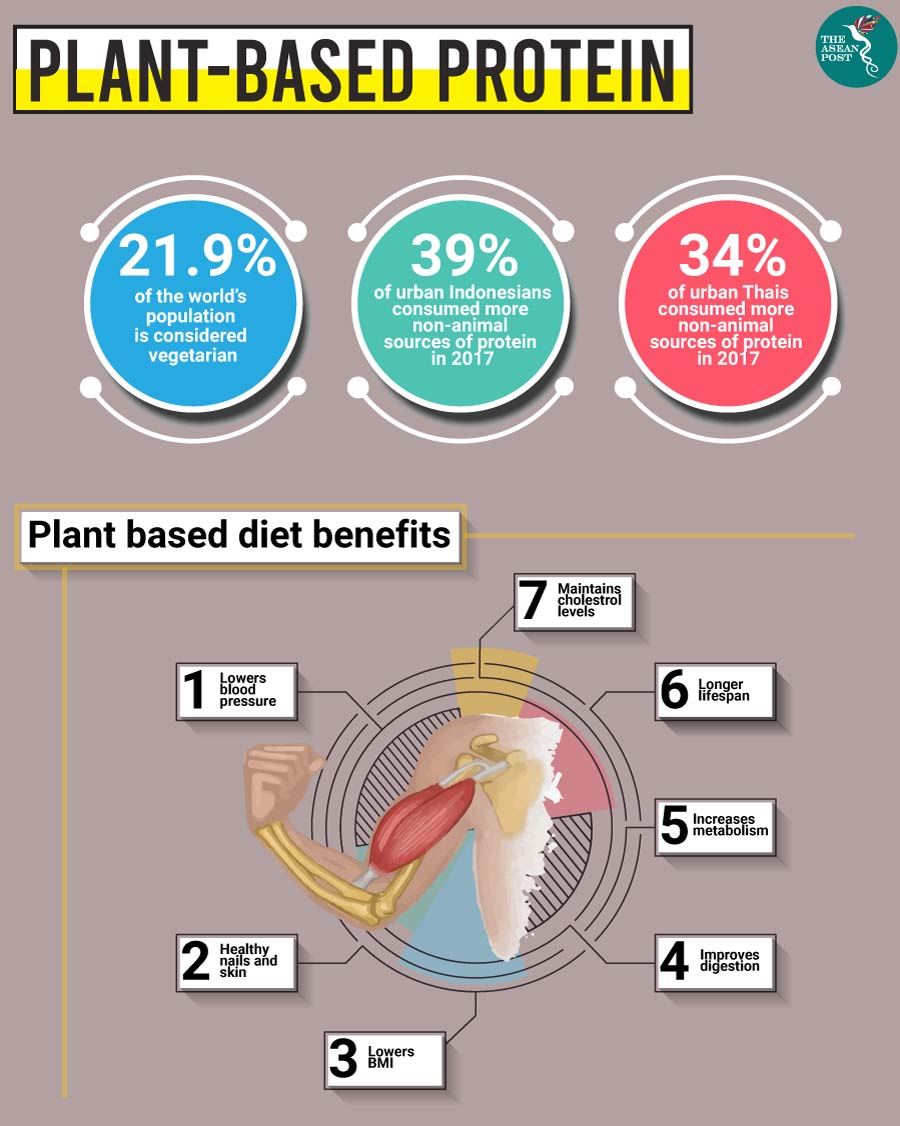Global meat consumption is on the rise, and based on a report by Asia Research and Engagement, Asia’s seafood and meat consumption will rise by 78 percent in 2050. And this rise will likely have an impact on the environment.
As reported by the United Nations (UN) Food and Agriculture Organization (FAO), 30 percent of the Earth’s landmass is used to raise animal food. Livestock farming contributes to global warming, where clearing land for pastures releases carbon dioxide (CO2) at a staggering rate. Cows also release large volumes of heat-trapping methane.
Animals consume more food than they produce and animal farming can be a threat to our water supply. According to the Stockholm International Water Institute, the world may run out of fresh water by 2050, unless people reduce their consumption of animal-based products.
The pressure on the environment is forcing consumers and companies to rethink their consumption habits. Although animals provide protein which is essential for humans, there are many plant foods that contain a high amount of protein per serving, like tofu and tempeh, chickpeas, lentils and green peas.
A meatless ASEAN
According to the World Economic Forum (WEF), the expanding middle class in the ASEAN region along with a rise in health awareness is leading to an increase of plant-based food intake.
Global market intelligence agency, Mintel, revealed that 39 percent of urban Indonesians and 34 percent of urban Thais consumed more non-animal sources of protein in 2017. The report added that 24 percent of urban Indonesians planned to follow a plant-based or vegetarian diet, while 61 percent of urban Thais planned to eat more vegetables and fruits.

Furthermore, nutritious or health-related reasons are influencing factors for 56 percent of Thais who eat healthy. Thailand also leads the way in dairy alternatives, with sweetcorn milk and coconut milk.
Michelle Teodoro, a Global Food Science and Nutrition Analyst at Mintel said, “Traditional agriculture is unable to meet the protein needs of the world. The current levels of demand for meat supplies globally, and the relative growth of meat production on this scale will have a significant, negative impact on the environment.”
“At the same time, more and more consumers are moving away from meat and looking towards alternative sources of protein instead, offering some relief and creating new opportunities in the global consumer marketplace,” she added.
Soy, pea, lentil and other grains are making the dietary supplements space more vibrant.
In Bali, Indonesia, plant-based food is easy to find for a meatless alternative. Plant Cartel, a restaurant by Sophia Made serves a fully vegan option. There, the replacements for meat is seitan, which is made out of wheat gluten, cheese is replaced by carrot and potato and bacon is produced from eggplants.
Sustainable alternative
Technology is essential in creating more sustainable alternatives to protein sources which can also redefine our whole supply chain.
Food technology is gaining traction in the region where scientific engineering of food has taken mankind a long way on the path to increasing its availability, access and quality. However, not many are keen on the prospect of eating lab-engineered meat. For these people, plant-based protein is a great option.
At the recent ‘Liveability Challenge 2019’ in Singapore, a sustainable source of protein made from micro-algae was awarded the top prize for its potential to make Southeast Asia’s cities more liveable and resilient. The protein, by Sophie’s Kitchen, can be used in anything from dietary supplements to biofuel and according to the kitchen’s co-founder and chief executive, Eugene Wang, “while growing a tonne of protein from beef uses 141 hectares of land, to grow (the algae) protein just requires 0.02 hectares of land.”
“We think that plant-based protein will become a substitute for meat protein. We hope they can take it to the market quickly so that its benefits will be felt,” said Lim Hock Chuan, chief executive of Temasek Foundation Ecosperity.
Singapore is now becoming the innovation hub for agriculture in Asia, as observed by the increase of venture capitalists (VCs) and accelerators focusing on agrifood-tech in the country. Due to the scarcity of land, Singapore has never been an agricultural nation. Now, strawberries can be grown indoors commercially.
Sustainable in diet and earth
“Today, it is no longer just about tackling hunger. We need to grow better and healthier food in an environmentally conscious manner,” said Ted Tan, deputy chief executive of Enterprise Singapore, at the recent Future of Food Asia Conference.
Man’s appetite for meat and dairy products is having serious environmental consequences. However, some health professionals say that a wholly plant-based diet runs the risk of insufficient nutrients like protein and iron. The other criticism comes from the fact that most plant proteins are missing at least one of the essential amino acids required. Though grains like quinoa and buckwheat are complete in this sense.
Perhaps the idea for a sustainable diet is not a meat-less diet but a less-meat one with a strong inclination towards fruits, grains and vegetables. Reducing our reliance on factory-farmed animals can contribute to a low-carbon, sustainable and liveable future.
Related articles:
